Brewing success: Kunming steams ahead as China's coffee hub
Along the shimmering shores of Dianchi Lake, the rich aroma of coffee filled the air as the 2025 Dianchi International Coffee Culture Carnival kicked off, spanning both sides of the lake. Baristas from Thailand, Indonesia, Vietnam, and Singapore joined local coffee growers and mobile café owners from Guangdong, Sichuan, Shanghai, and Yunnan, turning the lakeside into a vibrant showcase of global coffee culture.
the nine-day festival marked the first time the event united the entire Dianchi region, featuring over 20 specialty activities and 80 live performances. The celebration highlighted Kunming’s open and inclusive spirit, using coffee as a bridge to the world.
As activities continue, public interest swells. Kunming is solidifying its role as China’s emerging coffee hub—with its vision of becoming the nation’s "Coffee Capital" growing ever clearer.
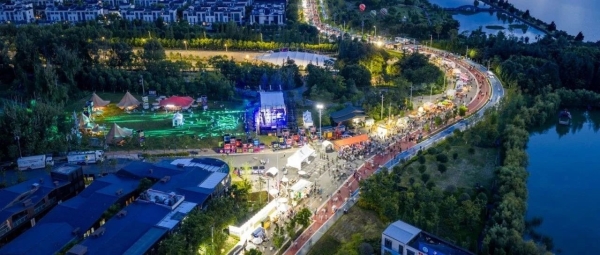
Kunming’s Coffee Carnival Evolves: From Culture to Industry Hub
Last year’s debut Dianchi East Bank International Coffee Culture Carnival made a splash—drawing 650,000 visitors in just nine days, serving 120,000 cups of coffee, and generating nearly 100 million yuan in spending.
The event even set a Guinness World Record for the "Largest Coffee Tasting Party," as 70 mobile cafés from across China and 30 from Southeast Asia lined the bank, creating a striking spectacle.
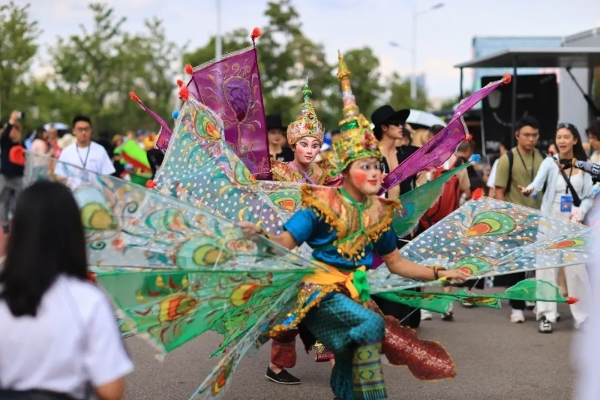
"This carnival was eye-opening—I discovered unique coffee trucks, connected with industry peers nationwide, and even secured new suppliers," said Cheng Ju, a mobile café owner from Chengdu who returned for this year’s edition. "I signed up without hesitation, expecting to tap into broader resources."
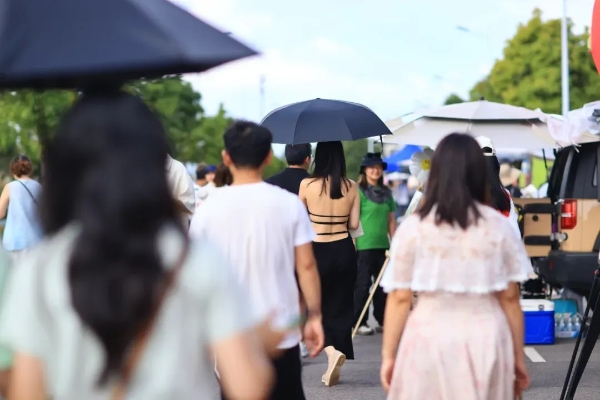
Buoyed by word-of-mouth among mobile coffee vendors and viral social media buzz, the 2025 Dianchi International Coffee Carnival scaled new heights. This year’s event drew over 100 coffee trucks—triple last year’s count—lining the Dianchi lakeside greenway. At Thai brand LIBAELLY’s packed stall, its manager noted:"The rich depth of Yunnan coffee complements the fruity notes of Southeast Asian coffee, revealing major collaboration potential."
Among the crowd was Liu Jingbo, who ventured into Pu’er’s remote forests in 2010 to cultivate Kenyan SL28 beans. His brand, Ruru Coffee Estate, now showcases Yunnan’s premium beans at the carnival. "This platform lets us share the story behind Yunnan’s coffee culture," said Liu. "It’s our duty to help consumers trace their brew’s origins—and put local beans on the world map."
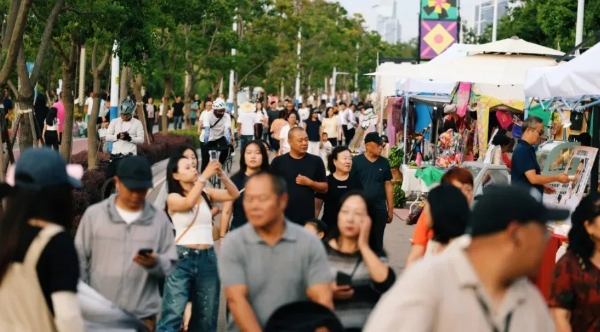
The event’s expanded format—spanning both sides of Dianchi Lake for the first time—drew over 350,000 visitors in just two days. "The overwhelming response smashed our expectations," said Li Yuan, marketing lead at Kunming’s tourism group.
Meanwhile, during the event, Meituan Travel and the Kunming Culture and Tourism Bureau reached a major strategic partnership. Kunming became the first city to launch Meituan’s 'Beauty in Destination' initiative, with 'Beauty in Kunming' serving as the flagship case for this new IP.
Local dairy giant Xuelan Dairy, as the event’s exclusive milk partner, debuted a specialty "Milk Coffee Fresh Milk" co-developed with Kunming’s tourism authority. "Our mission is to elevate coffee’s taste—and now, Yunnan’s highland dairy aroma can mingle with its world-class beans," a company representative said.
From Bean Hub to Industry Powerhouse: Kunming’s Coffee Transformation
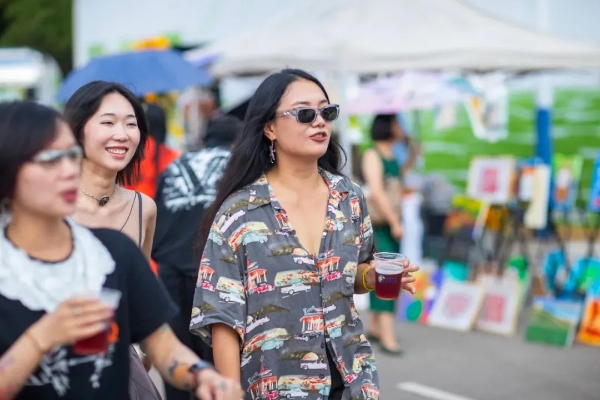
While Yunnan produces 98% of China’s coffee beans, Kunming is reinventing itself—from a transit hub for raw beans to the nation’s coffee industry nexus, leveraging strategic geography and policy incentives.
Enter Benai Coffee, a homegrown brand championed by Kunming Dianchi National Tourist Resort. Merging heritage with caffeine culture, it’s transforming lakeside villages like Haiyan—a 600-year-old fishing hamlet famed for its sunsets—into experiential destinations. The village’s history hall now doubles as a café where visitors roast beans, craft lattes, and sip cold brew amid traditional architecture. "Sales are strong—300-400 daily customers favor americanos, lattes, and caramel lattes," said Li Tao, a Benai Coffee staffer. "Pairing ethnic culture with coffee creates a unique leisure vibe."

For two consecutive years, Benai Coffee has emerged as the breakout star of Dianchi International Coffee Culture Carnival, with daily sales peaking at 1,500 cups—a testament to how specialty coffee is brewing new opportunities in cultural tourism.
The brand’s innovative public-private-community model has transformed 183 lakeside villages into "Benai Bookhouse" hubs, integrating coffee production with immersive experiences. From Haiyan’s ancient fishing wharf to Bai minority village, these spaces now double as retail points for Benai Coffee and its cultural creative product lines.
The success mirrors Kunming’s broader ambitions. The newly established China (Kunming) International Coffee Industrial Park has helped cluster 91.77 billion yuan in annual industrial chain output, with exports reaching 29 countries. Strategic advantages like the 15-day China-Europe freight rail, free trade zone policies cutting trade costs by 30%, and advance cold chain tech tripling bean freshness are positioning Kunming as Asia’s next coffee nexus.
From Imported Luxury to Urban Identity: How Coffee Became Kunming’s Cultural Currency
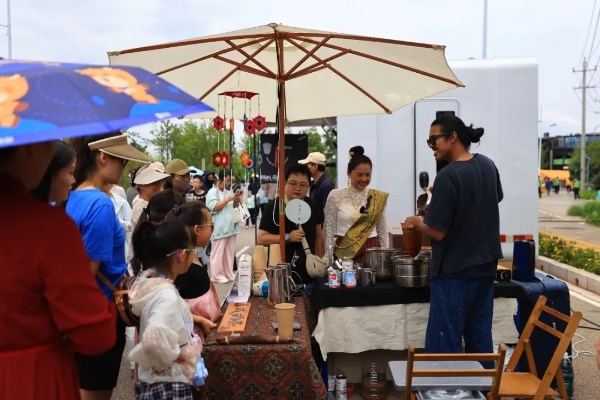
Though Kunming doesn’t grow coffee beans, it is woven into the very fabric of China’s coffee culture.
The aroma of coffee has lingered beneath the parasol trees of Jinbi Road for nearly a century. Kunming’s earliest coffee traditions trace back to the late Qing Dynasty and early Republic period, when the Yunnan-Vietnam Railway brought coffee as an exotic import. In the 1930s, Vietnamese entrepreneur Ruan Minxuan opened Nanlaisheng, a Western-style café on Jinbi Road, where freshly ground coffee marked the moment coffee truly took root in Kunming.
Today, Kunming blends vibrant commerce, dynamic consumption, and fertile ground for innovation—brewing endless possibilities for coffee culture. From the shores of Cuihu to historic villages along Dian Lake, from bustling shopping districts to lively alleyways, the city is home to over 2,000 cafés, with lakeside areas offering particularly rich coffee experiences. Many café owners see Kunming as a testing ground: "If you succeed here, you’re already halfway to success."
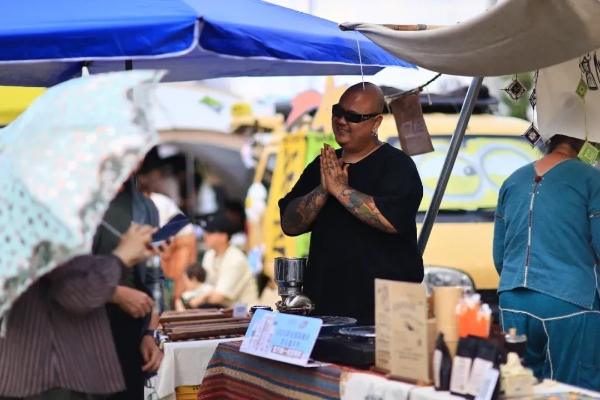
"In Kunming, you feel this wonderful sense of ease and freedom. Sipping coffee by Dianchi Lake at sunset, chatting casually with strangers—that’s the feeling I love."
"The weather here is perfect, and the people are warm yet full of character."
"The work pace is slower, life moves at a gentler rhythm—it’s the perfect escape from the grind."

Why are coffee entrepreneurs and mobile café owners so optimistic about Kunming’s market? Different vendors give different answers, but most emphasize one word—culture. As the city with Yunnan’s most vibrant coffee scene, Kunming has long infused "coffee flavor" into its urban DNA.
"Coffee culture is part of world culture," says Li Wei, a Yunnan coffee industry blogger. "Its evolution blends traditions and histories from across the globe. Though Kunming started later, every generation of Yunnan coffee professionals—from farmers to roasters—is digging into our local heritage. Many draw inspiration from ethnic traditions, like unique liquor-brewing or tea-processing techniques, and apply those methods to coffee. We’re fusing global coffee culture with our own, creating something distinctly Yunnan. With this collective effort, we’ll not only attract more coffee lovers, but also deepen Kunming’s ‘coffee aroma’—until it becomes a globally recognized ‘City of Coffee’."
Kunming Brews a New Global Identity Through Coffee Culture
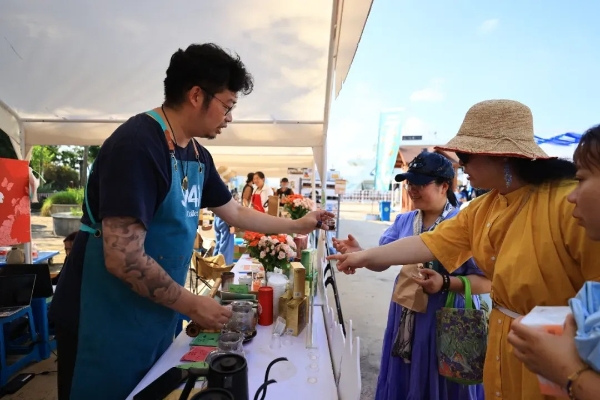
The 2025 Dianchi International Coffee Carnival unveiled an innovative "East Meets West" concept, transforming the lake banks into a canvas of cultural exchange.
The east bank emerged as "Kunming's Artistic Heartbeat," where coffee ceremonies stretched across 3 kilometers of waterfront, inviting visitors to savor Yunnan's laidback lifestyle amid floating installations of coffee-inspired art. Across the lake, the west bank pulsed with youthful energy. A 24-hour "Coffee Soundscape" festival merged barista competitions with electronic beats, as visitors explored futuristic pop-ups where augmented reality revealed the journey from bean to cup—all cooled by Dianchi's perpetual 22°C breeze.
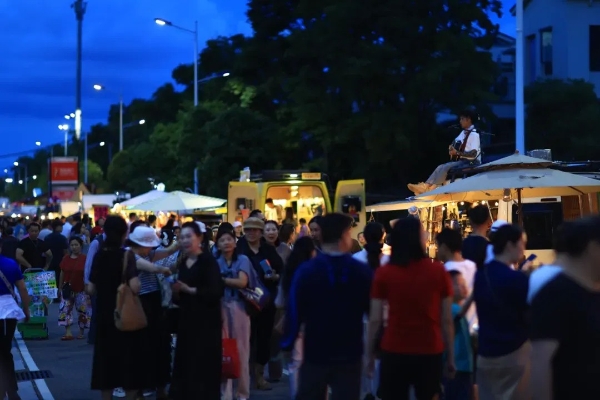
As dusk fell, the east bank's Number One Plaza became an open-air gallery. Crowds gathered at Zhangmei Village's upcycled market, where sculptures made from coffee grounds dotted the shoreline—a testament to sustainable creativity. Nearby, Xuelan Dairy's new barista-edition milk, developed exclusively for the carnival, embodied the event's "Symbiosis with Nature" theme.

Alexandre, a French chef and vendor, has lived in China for 30 years. Born into a family of chefs, he passionately innovates with Yunnan's abundant local ingredients to create authentic French and international dishes. His slow-roasted meats have become a crowd favorite at the carnival. "Twenty years ago, you'd need to visit a luxury hotel for proper coffee," Alexandre said. "Now Kunming is dotted with cafés. Just in my Baima neighborhood alone, over ten new coffee shops popped up last year—each with unique styles and flavors. It's developed a Chengdu-teahouse vibe, where people gather to chat over coffee." Having witnessed Kunming's coffee culture evolve firsthand, he noted this year's Dianchi carnival is the most vibrant yet, with record-breaking attendance.
At the Southeast Asian Coffee Culture Experience Zone, Indonesian stall owner Harris Hartanto introduced his coffee brand, Coffeenatics. This marks his first time participating in the Dianchi International Coffee Culture Carnival. "Kunming has completely won me over," Harris enthused, occasionally switching to his basic Chinese during the interview. "It's a city of stunning scenery and incredibly warm people – and Yunnan coffee ranks among the finest I've ever tasted."
Argentine vendor Diego came straight to Kunming from Hainan to attend the carnival—his second time participating in this event, with plans to spend three months in China. "These are stones and crystals I've collected from around the world, along with necklaces, rings, earrings, and bracelets I designed and crafted myself," he explained. As a coffee lover, Diego particularly enjoys Kunming's vibrant energy and the carnival's dynamic atmosphere. After having a wonderful experience last year, he returned to observe the evolution of China's coffee culture firsthand.
Another Iranian entrepreneur, An Xu, was impressed by the carnival's diverse offerings. "Between coffee specialists, bakers, various cuisines, and live music, there's so much to experience," he observed, noting the large crowds and vibrant atmosphere. "It's really quite special."
From "phenomenal breakout" to "comprehensive upgrade," the Dianchi International Coffee Culture Carnival is emerging as a new urban IP for Kunming. In the next phase, the Kunming Culture and Tourism Group will build upon this success to create a "Dian Lakeside Coffee Corridor" in the Caohai area, enabling year-round coffee culture operations. The event’s theme, "Coexisting with All Beings," aligns seamlessly with Dianchi’s vision of "grand ecology, grand wetlands, and grand scenery," driving the transformation of ecological value into economic and social benefits. It is evident that Kunming is steadily solidifying its role as a rising hub in China’s coffee industry, advancing with confident strides.
Click here to view Chinese report